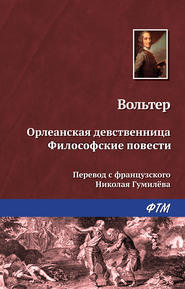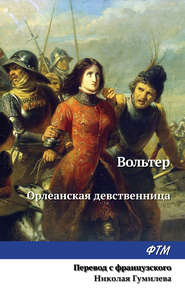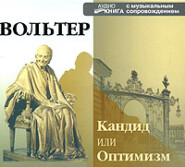По всем вопросам обращайтесь на: info@litportal.ru
(©) 2003-2024.
✖
A Philosophical Dictionary, Volume 02
Настройки чтения
Размер шрифта
Высота строк
Поля
The only question now agitated is, whether the author of nature has formed primordial parts unsusceptible of division, or if all is continually dividing and changing into other elements. The first system seems to account for everything, and the second, hitherto at least, for nothing.
If the first elements of things were not indestructible one element might at last swallow up all the rest, and change them into its own substance. Hence, perhaps it was that Empedocles imagined that everything came from fire, and would be destroyed by fire.
This question of atoms involves another, that of the divisibility of matter ad infinitum. The word atom signifies without parts – not to be divided. You divide it in thought, for if you were to divide it in reality it would no longer be an atom.
You may divide a grain of gold into eighteen millions of visible parts; a grain of copper dissolved in spirit of sal ammoniac has exhibited upwards of twenty-two thousand parts; but when you have arrived at the last element the atom escapes the microscope, and you can divide no further except in imagination.
The infinite divisibility of atoms is like some propositions in geometry. You may pass an infinity of curves between a circle and its tangent, supposing the circle and the tangent to be lines without breadth; but there are no such lines in nature.
You likewise establish that asymptotes will approach one another without ever meeting; but it is under the supposition that they are lines having length without breadth – things which have only a speculative existence.
So, also, we represent unity by a line, and divide this line and this unity into as many fractions as you please; but this infinity of fractions will never be any other than our unity and our line.
It is not strictly demonstrated that atoms are indivisible, but it appears that they are not divided by the laws of nature.
AVARICE
Avarities, amor habendi– desire of having, avidity, covetousness. Properly speaking, avarice is the desire of accumulating, whether in grain, movables, money, or curiosities. There were avaricious men long before coin was invented.
We do not call a man avaricious who has four and twenty coach horses, yet will not lend one to his friend: or who, having two thousand bottles of Burgundy in his cellar, will not send you half a dozen, when he knows you to be in want of them. If he show you a hundred thousand crowns' worth of diamonds you do not think of asking him to present you with one worth twenty livres; you consider him as a man of great magnificence, but not at all avaricious.
He who in finance, in army contracts, and great undertakings gained two millions each year, and who, when possessed of forty-three millions, besides his houses at Paris and his movables, expended fifty thousand crowns per annum for his table, and sometimes lent money to noblemen at five per cent, interest, did not pass, in the minds of the people, for an avaricious man. He had, however, all his life burned with the thirst of gain; the demon of covetousness was perpetually tormenting him; he continued to accumulate to the last day of his life. This passion, which was constantly gratified, has never been called avarice. He did not expend a tenth part of his income, yet he had the reputation of a generous man, too fond of splendor.
A father of a family who, with an income of twenty thousand livres, expends only five or six, and accumulates his savings to portion his children, has the reputation among his neighbors of being avaricious, mean, stingy, a niggard, a miser, a grip-farthing; and every abusive epithet that can be thought of is bestowed upon him.
Nevertheless this good citizen is much more to be honored than the Crœsus I have just mentioned; he expends three times as much in proportion. But the cause of the great difference between their reputations is this:
Men hate the individual whom they call avaricious only because there is nothing to be gained by him. The physician, the apothecary, the wine-merchant, the draper, the grocer, the saddler, and a few girls gain a good deal by our Croesus, who is truly avaricious. But with our close and economical citizen there is nothing to be done. Therefore he is loaded with maledictions.
As for those among the avaricious who deprive themselves of the necessaries of life, we leave them to Plautus and Molière.
AUGURY
Must not a man be very thoroughly possessed by the demon of etymology to say, with Pezron and others, that the Roman word augurium came from the Celtic words au and gur? According to these learned men au must, among the Basques and Bas-Bretons, have signified the liver, because asu, which, (say they) signified left, doubtless stood for the liver, which is on the right side; and gur meant man, or yellow, or red, in that Celtic tongue of which we have not one memorial. Truly this is powerful reasoning.
Absurd curiosity (for we must call things by their right names) has been carried so far as to seek Hebrew and Chaldee derivations from certain Teutonic and Celtic words. This, Bochart never fails to do. It is astonishing with what confidence these men of genius have proved that expressions used on the banks of the Tiber were borrowed from the patois of the savages of Biscay. Nay, they even assert that this patois was one of the first idioms of the primitive language – the parent of all other languages throughout the world. They have only to proceed, and say that all the various notes of birds come from the cry of the two first parrots, from which every other species of birds has been produced.
The religious folly of auguries was originally founded on very sound and natural observations. The birds of passage have always marked the progress of the seasons. We see them come in flocks in the spring, and return in the autumn. The cuckoo is heard only in fine weather, which his note seems to invite. The swallows, skimming along the ground, announce rain. Each climate has its bird, which is in effect its augury.
Among the observing part of mankind there were, no doubt, knaves who persuaded fools that there was something divine in these animals, and that their flight presaged our destinies, which were written on the wings of a sparrow just as clearly as in the stars.
The commentators on the allegorical and interesting story of Joseph sold by his brethren, and made Pharaoh's prime minister for having explained his dreams, infer that Joseph was skilled in the science of auguries, from the circumstance that Joseph's steward is commanded to say to his brethren, "Is not this it (the silver cup) in which my lord drinketh? and whereby indeed he divineth?" Joseph, having caused his brethren to be brought back before him, says to them: "What deed is this that ye have done? Wot ye not that such a man as I can certainly divine?"
Judah acknowledges, in the name of his brethren, that Joseph is a great diviner, and that God has inspired him: "God hath found out the iniquity of thy servants." At that time they took Joseph for an Egyptian lord. It is evident from the text that they believe the God of the Egyptians and of the Jews had discovered to this minister the theft of his cup.
Here, then, we have auguries or divination clearly established in the Book of Genesis; so clearly that it is afterwards forbidden in Leviticus: "Ye shall not eat anything with the blood; neither shall ye use enchantment nor observe times. Ye shall not round the corners of your heads, neither shalt thou mar the corners of thy beard."
As for the superstition of seeing the future in a cup, it still exists, and is called seeing in a glass. The individual must never have known pollution; he must turn towards the east, and pronounce the words, Abraxa per dominum nostrum, after which he will see in a glass of water whatever he pleases. Children were usually chosen for this operation. They must retain their hair; a shaven head, or one wearing a wig, can see nothing in a glass. This pastime was much in vogue in France during the regency of the duke of Orleans, and still more so in the times preceding.
As for auguries, they perished with the Roman Empire. Only the bishops have retained the augurial staff, called the crosier; which was the distinctive mark of the dignity of augur; so that the symbol of falsehood has become the symbol of truth.
There were innumerable kinds of divinations, of which several have reached our latter ages. This curiosity to read the future is a malady which only philosophy can cure, for the weak minds that still practise these pretended arts of divination – even the fools who give themselves to the devils – all make religion subservient to these profanations, by which it is outraged.
It is an observation worthy of the wise, that Cicero, who was one of the college of augurs, wrote a book for the sole purpose of turning auguries into ridicule; but they have likewise remarked that Cicero, at the end of his book, says that "superstition should be destroyed, but not religion. For," he adds, "the beauty of the universe, and the order of the heavenly bodies force us to acknowledge an eternal and powerful nature. We must maintain the religion which is joined with the knowledge of this nature, by utterly extirpating superstition, for it is a monster which pursues and presses us on every side. The meeting with a pretended diviner, a presage, an immolated victim, a bird, a Chaldæan, an aruspice, a flash of lightning, a clap of thunder, an event accidentally corresponding with what has been foretold to us, everything disturbs and makes us uneasy; sleep itself, which should make us forget all these pains and fears, serves but to redouble them by frightful images."
Cicero thought he was addressing only a few Romans, but he was speaking to all men and all ages.
Most of the great men of Rome no more believed in auguries than Alexander VI., Julius II., and Leo X., believed in Our Lady of Loretto and the blood of St. Januarius. However, Suetonius relates that Octavius, surnamed Augustus, was so weak as to believe that a fish, which leaped from the sea upon the shore at Actium, foreboded that he should gain the battle. He adds that, having afterwards met an ass-driver, he asked him the name of his ass; and the man having answered that his ass was named Nicholas, which signifies conqueror of nations, he had no longer any doubts about the victory; and that he afterwards had brazen statues erected to the ass-driver, the ass, and the jumping fish. He further assures us that these statues were placed in the Capitol.
It is very likely that this able tyrant laughed at the superstitions of the Romans, and that his ass, the driver, and the fish, were nothing more than a joke. But it is no less likely that, while he despised all the follies of the vulgar, he had a few of his own. The barbarous and dissimulating Louis XI. had a firm faith in the cross of St. Louis. Almost all princes, excepting such as have had time to read, and read to advantage, are in some degree infected with superstition.
AUGUSTINE
Augustine, a native of Tagaste, is here to be considered, not as a bishop, a doctor, a father of the Church, but simply as a man. This is a question in physics, respecting the climate of Africa.
When a youth, Augustine was a great libertine, and the spirit was no less quick in him than the flesh. He says that before he was twenty years old he had learned arithmetic, geometry and music without a master.
Does not this prove that, in Africa, which we now call Barbary, both minds and bodies advance to maturity more rapidly than among us?
These valuable advantages of St. Augustine would lead one to believe that Empedocles was not altogether in the wrong when he regarded fire as the principle of nature. It is assisted, but by subordinate agents. It is like a king governing the actions of all his subjects, and sometimes inflaming the imaginations of his people rather too much. It is not without reason that Syphax says to Juba, in the Cato of Addison, that the sun which rolls its fiery car over African heads places a deeper tinge upon the cheeks, and a fiercer flame within their hearts. That the dames of Zama are vastly superior to the pale beauties of the north:
The glowing dames of Zama's royal court
Have faces flushed with more exalted charms;
Were you with these, my prince, you'd soon forget
The pale unripened beauties of the north.
Where shall we find in Paris, Strasburg, Ratisbon, or Vienna young men who have learned arithmetic, the mathematics and music without assistance, and who have been fathers at fourteen?
Doubtless it is no fable that Atlas, prince of Mauritania, called by the Greeks the son of heaven, was a celebrated astronomer, and constructed a celestial sphere such as the Chinese have had for so many ages. The ancients, who expressed everything in allegory, likened this prince to the mountain which bears his name, because it lifts its head above the clouds, which have been called the heavens by all mankind who have judged of things only from the testimony of their eyes.
These Moors cultivated the sciences with success, and taught Spain and Italy for five centuries. Things are greatly altered. The country of Augustine is now but a den of pirates, while England, Italy, Germany, and France, which were involved in barbarism, are greater cultivators of the arts than ever the Arabians were.
Our only object, then, in this article is to show how changeable a scene this world is. Augustine, from a debauchee, becomes an orator and a philosopher; he puts himself forward in the world; he teaches rhetoric; he turns Manichæan, and from Manichæanism passes to Christianity. He causes himself to be baptized, together with one of his bastards, named Deodatus; he becomes a bishop, and a father of the Church. His system of grace has been reverenced for eleven hundred years as an article of faith. At the end of eleven hundred years some Jesuits find means to procure an anathema against Augustine's system, word for word, under the names of Jansenius, St. Cyril, Arnaud, and Quesnel. We ask if this revolution is not, in its kind, as great as that of Africa, and if there be anything permanent upon earth?
AUGUSTUS (OCTAVIUS)
The Morals of Augustus
Manners can be known only from facts, which facts must be incontestable. It is beyond doubt that this man, so immoderately praised as the restorer of morals and of laws, was long one of the most infamous debauchees in the Roman commonwealth. His epigram on Fulvia, written after the horrors of the proscriptions, proves that he was no less a despiser of decency in his language than he was a barbarian in his conduct. This abominable epigram is one of the strongest testimonies to Augustus' infamous immorality. Sextus Pompeius also reproached him with shameful weaknesses: "Effeminatum infectatus est." Antony, before the triumvirate, declared that Cæsar, great-uncle to Augustus, had adopted him as his son only because he had been subservient to his pleasures; "Adopt ionem avunculi stupro meritum."
Lucius Cæsar charged him with the same crime, and even asserted that he had been base enough to sell himself to Hirtius for a very considerable sum. He was so shameless as to take the wife of a consul from her husband in the midst of a supper; he took her to a neighboring closet, staid with her there for some time, and brought her back to table without himself, the woman, or her husband blushing at all at the proceeding.
We have also a letter from Antony to Augustus, couched in these terms: "Ita valeas ut hanc epistolam cum leges, non inieris Testullam, aut Terentillam, aut Russillam, aut Salviam, aut omnes. Anne refert ubi et in quam arrigas?" We are afraid to translate this licentious letter.
Nothing is better known than the scandalous feast of five of the companions of his pleasures with five of the principal women of Rome. They were dressed up as gods and goddesses, and imitated all the immodesties invented in fable —"Bum nova Divorum cœnat adulteria." And on the stage he was publicly designated by this famous line:
Videsne ut cinaedus orbem digito temperet?

















